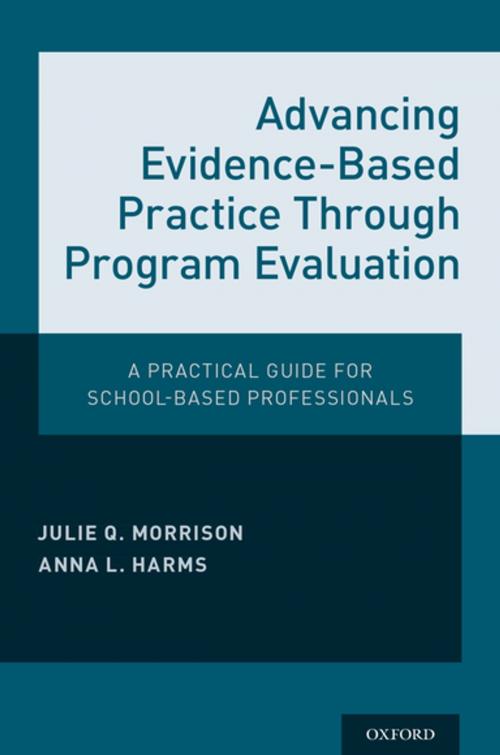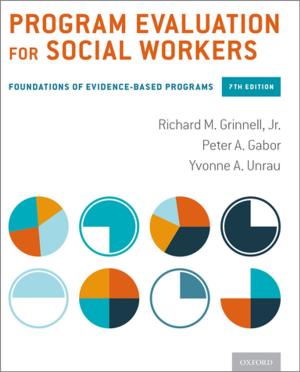Advancing Evidence-Based Practice Through Program Evaluation
A Practical Guide for School-Based Professionals
Nonfiction, Reference & Language, Education & Teaching, Educational Theory, Educational Psychology, Health & Well Being, Psychology, Clinical Psychology, Medical| Author: | Julie Q. Morrison, Anna L. Harms | ISBN: | 9780190671709 |
| Publisher: | Oxford University Press | Publication: | February 1, 2018 |
| Imprint: | Oxford University Press | Language: | English |
| Author: | Julie Q. Morrison, Anna L. Harms |
| ISBN: | 9780190671709 |
| Publisher: | Oxford University Press |
| Publication: | February 1, 2018 |
| Imprint: | Oxford University Press |
| Language: | English |
Given the current climate of results-driven accountability, school-based professionals have a significant contribution to make in improving the impact of programs and initiatives through the application of program evaluation methods and tools to inform decision making within a multi-tier system of supports framework. And yet there is currently a dearth of practical resources dedicated to developing school psychologists' competencies in program evaluation. Advancing Evidence-Based Practice through Program Evaluation will meet the needs of school psychologists and other school-based professionals seeking to use program evaluation approaches to enhance data-based decision making and accountability at a program and systems-level. This practical guide provides the most cutting-edge evaluation frameworks, methods, and tools available, with particular emphasis on the rapidly-developing areas of implementation research, evidence-based professional learning, and innovative approaches to communicating evaluation findings. The book will support school professionals in daily practice by enhancing and extending their knowledge and skills in measurement, assessment, consultation for systems change and the use of evidence-based interventions for academic and social/behavioral concerns, with a focus on evaluating the implementation and outcomes of school-based programs. The book will also facilitate the professional development of those currently engaged in graduate preparation programs in education, educational leadership, school counseling, and school social work, as well as the university faculty who guide their professional preparation. Finally, school professionals may also use Advancing Evidence-Based Practice through Program Evaluation to develop their professional competencies in implementing new initiatives funded by grants with clear expectations for program evaluation.
Given the current climate of results-driven accountability, school-based professionals have a significant contribution to make in improving the impact of programs and initiatives through the application of program evaluation methods and tools to inform decision making within a multi-tier system of supports framework. And yet there is currently a dearth of practical resources dedicated to developing school psychologists' competencies in program evaluation. Advancing Evidence-Based Practice through Program Evaluation will meet the needs of school psychologists and other school-based professionals seeking to use program evaluation approaches to enhance data-based decision making and accountability at a program and systems-level. This practical guide provides the most cutting-edge evaluation frameworks, methods, and tools available, with particular emphasis on the rapidly-developing areas of implementation research, evidence-based professional learning, and innovative approaches to communicating evaluation findings. The book will support school professionals in daily practice by enhancing and extending their knowledge and skills in measurement, assessment, consultation for systems change and the use of evidence-based interventions for academic and social/behavioral concerns, with a focus on evaluating the implementation and outcomes of school-based programs. The book will also facilitate the professional development of those currently engaged in graduate preparation programs in education, educational leadership, school counseling, and school social work, as well as the university faculty who guide their professional preparation. Finally, school professionals may also use Advancing Evidence-Based Practice through Program Evaluation to develop their professional competencies in implementing new initiatives funded by grants with clear expectations for program evaluation.















